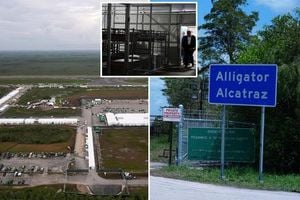The recent midair collision near Ronald Reagan Washington National Airport (DCA) has raised significant alarm about the safety of air travel and the hiring practices of the Federal Aviation Administration (FAA). Investigations reveal troubling connections between this tragic incident and the FAA's hiring policies, particularly those aimed at enhancing diversity, equity, and inclusion (DEI) within the agency.
This disastrous collision has thrown the spotlight onto the FAA’s emphasis on DEI initiatives over experienced and competent air traffic control staff. For over a decade, beginning with changes implemented during the Obama administration, the agency has shifted its focus to hiring policies aimed at increasing diversity at the expense of proven qualifications.
Back in 2014, the FAA overhauled its hiring processes to prioritize diversity. The previous system had centered on graduates of the Air Traffic-Collegiate Training Initiative (AT-CTI), which provided rigorous training for aspiring air traffic controllers. Under the previous system, candidates were required to pass the FAA’s Air Traffic Selection and Training (AT-SAT) exam to progress. This exam was known for effectively identifying capable candidates for the high-stress role of managing airspace.
The shift to DEI initiatives saw the AT-CTI pathway discarded, replaced by subjective measures like biographical questionnaires (BQ). These changes allowed the FAA to prioritize candidates based on their life experiences and cultural backgrounds rather than their aviation qualifications. Shockingly, nearly 1,000 qualified AT-CTI graduates were filtered out of the selection process during this transition. Reportedly, individuals who failed the AT-SAT exam were granted multiple opportunities to retake it, whereas the AT-CTI graduates faced categorical exclusion.
This significant departure from merit-based hiring has prompted numerous lawsuits against the FAA, alleging discrimination against qualified candidates. The Biden administration has continued to support and expand these DEI hiring policies, raising concerns about air traffic safety and staffing competencies.
At the time of the midair collision, the control tower at DCA was critically understaffed. According to reports, the tower required at least 30 air traffic controllers to manage air traffic safely but was equipped with only 19. This lack of personnel was compounded by the intricacies of handling both commercial and military aircraft within one of the nation’s busiest flight corridors. The underfunded staffing inevitably leads to increased workloads, fatigue, and the potential for mistakes—all of which are concerning factors for aviation safety.
The pressing questions following the collision focus not simply on what happened but on the broader impact of FAA’s hiring policies on air traffic control performance. Will officials identify controller error as the root cause, or will they pinpoint staffing shortages as the underlying issue? Regardless of the official findings, the alarming numbers highlight the lengthy repercussions of DEI-driven approaches.
Former President Donald Trump, who has returned to the White House, has vowed to eradicate DEI programs within the federal government, including the FAA. Shortly after assuming office, he signed an executive order demanding the dismantling of all DEI offices and programs within 60 days. This directive aims to reconnect federal hiring with merit and qualifications, especially for roles as delicate and impactful as air traffic control.
Trump's actions included placing DEI-focused employees on paid leave during the restructuring of hiring practices, eliminating DEI-based hiring mandates, and initiating a comprehensive audit of FAA assessment standards, especially within air traffic control recruitment and training. By reinstancing merit over quotas, Trump hopes to correct the misguided policies of the past decade, emphasizing skill, experience, and proven competence.
Critics argue, and rightly so, lowering standards for high-stakes professions like air traffic control can lead to disastrous results. The recent midair collision serves as both a catalyst for necessary change and as a reminder of the dangers posed by abandoning stringent hiring practices for socially driven agendas. With investigations underway, one provokes thought: Would this midair disaster have been preventable had the FAA kept competence as its priority rather than focusing on representation?
While the intent behind enhancing diversity within federal hiring is laudable, air travel safety must not be compromised. The lessons from the recent collision are dire and highlight the urgent need for reviewing and revamping the FAA's approach to hiring air traffic controllers, ensuring public safety remains the primary focus.



